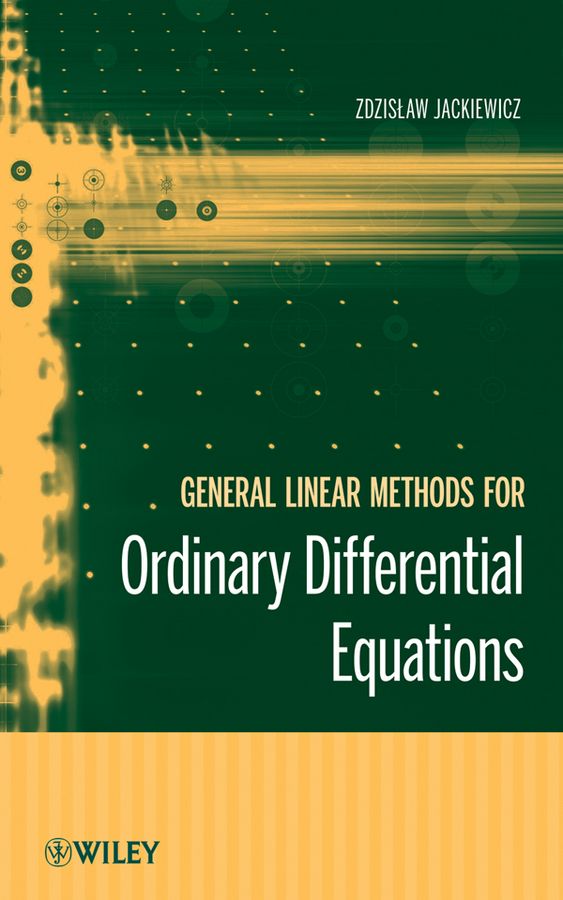Learn to develop numerical methods for ordinary differential equations <p>General Linear Methods for Ordinary Differential Equations fills a gap in the existing literature by presenting a comprehensive and up-to-date collection of recent advances and developments in the field. This book provides modern coverage of the theory, construction, and implementation of both classical and modern general linear methods for solving ordinary differential equations as they apply to a variety of related areas, including mathematics, applied science, and engineering.</p> <p>The author provides the theoretical foundation for understanding basic concepts and presents a short introduction to ordinary differential equations that encompasses the related concepts of existence and uniqueness theory, stability theory, and stiff differential equations and systems. In addition, a thorough presentation of general linear methods explores relevant subtopics such as pre-consistency, consistency, stage-consistency, zero stability, convergence, order- and stage-order conditions, local discretization error, and linear stability theory. Subsequent chapters feature coverage of:</p> <ul> <li>Differential equations and systems</li> <li> <p>Introduction to general linear methods (GLMs)</p> </li> <li> <p>Diagonally implicit multistage integration methods (DIMSIMs)</p> </li> <li> <p>Implementation of DIMSIMs</p> </li> <li> <p>Two-step Runge-Kutta (TSRK) methods</p> </li> <li> <p>Implementation of TSRK methods</p> </li> <li> <p>GLMs with inherent Runge-Kutta stability (IRKS)</p> </li> <li> <p>Implementation of GLMs with IRKS</p> </li> </ul> <p>General Linear Methods for Ordinary Differential Equations is an excellent book for courses on numerical ordinary differential equations at the upper-undergraduate and graduate levels. It is also a useful reference for academic and research professionals in the fields of computational and applied mathematics, computational physics, civil and chemical engineering, chemistry, and the life sciences.</p>
Mathematics
General Linear Methods for Ordinary Differential Equations
₹10,955.00
This book is currently not in stock. You are pre-ordering this book.

